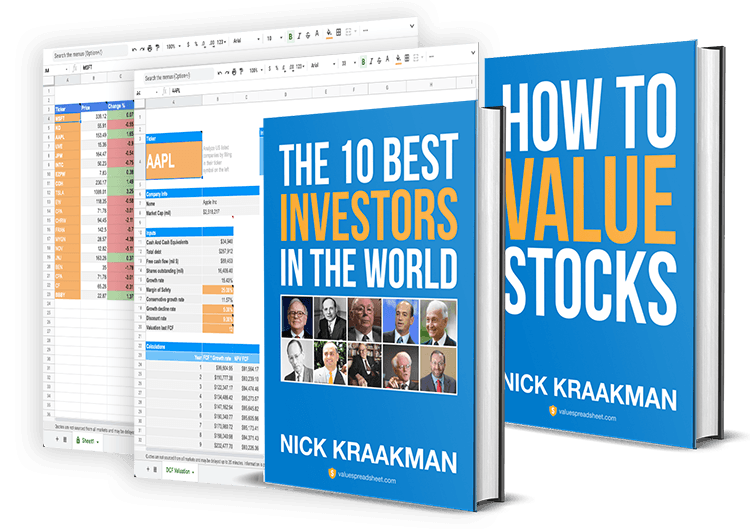
Many people work very hard, but they never seem to earn enough. In Rich Dad, Poor Dad, Robert Kiyosaki explains how to escape this "rat race" and achieve financial independence.
Everybody should go to school, get high grades and then get a good job, right? Wrong! Well, at least if financial independence is what you are aiming at. Our education system is the number one cause of why so many people struggle financially. Schools teach people how to work for money, but they do not teach them how money can work for them. This lack of financial skills taught in school means that even highly educated people generally do not know how to handle money. The result is that the majority of people get trapped in work to pay their bills and are chasing paychecks all their life.
This is the sad conclusion Robert Kiyosaki draws in his bestselling book Rich Dad, Poor Dad. Luckily, he also offers a way out. A way to get ahead. The fundamental trouble with working for money is that a job is a short term solution to a long term problem. People believe that if they get that raise, or get a new job they will finally have enough. However, if you do not know how money works, you can never have enough. Money alone will not solve anything, it will even get most people into more debt. So what is the secret to financial independence? Close the doors..
"Know what an asset is, acquire them and become rich."
That's it! Easy, huh? The trouble is that people are not properly taught how to spend their money. Many do not know the difference between an asset, something which puts money in your pocket, and a liability, something which takes money out of your pocket. Kiyosaki's main point is that the only way to become financially independent is to accumulate income generating assets which can pay for your expenses. However, many people rather buy a new car or an iPad (liabilities) instead of investing that money in stocks or real estate (assets). I recently posted an infographic which shows the difference in returns if you would have bought Apple stocks instead of one of their products.
The fear of straying from the generally accepted life path plays a big role in the financial decision making process. However, if you do not want money to control you like it does most people, then you will have to do things differently from the crowd. Investing legend John Templeton seems to agree on this point.
But you already own income generating assets, because you own a house. The best investment you can make, right? Not really. The book lists several reasons:
- Most people work all their lives paying for a home they never own
- Despite a tax deduction for interest on mortgage payments, all expenses are paid with after-tax dollars
- Property taxes can suddenly be increased without notice
- Houses do not always go up in value
- Opportunity costs are tremendous, because when all your money is tied up in your house, there will be no money left to invest in income generating assets
WHY THE RICH GET RICHER
I have heard from many people around me that their expenses always seem to keep up with their income. They do not understand why they earn more than they used to but still have no money left at the end of the month. They struggle financially because when their income goes up, their expenses also go up. However, their assets do not increase, but their liabilities do! They work to make their boss rich, they work to pay government taxes, and they work for the bank to pay off their debts. Working harder means that you will have to hand over an even bigger share of your efforts to these three parties. The rich get richer because their assets generate more than enough income to cover their expenses, and part of the income is then reinvested into new assets, therefore increasing the generated income even further. On the stock market, net income which is reinvested is called retained earnings. Reinvesting income into new assets triggers the power of compounded interest, to which Einstein once famously referred as the "eighth wonder of the world".
We have been talking about income generating assets, but what falls into that category? Here is a list to give you some ideas:
- Businesses that do not require your presence
- Stocks
- Bonds
- Mutual funds
- Income-generating real estate
- Royalties
- And really anything which appreciates in value over time
If you think investing is scary and just another word for gambling, then I advise you to read into the low-risk, high-return strategy used by the investment greats: value investing.
SUMMARY & KEY LESSONS
Now that you are aware of the fundamental problems of working for money, I will sum up a few of the key lessons from the book which can help you achieve a life where you are no longer dependent on your paycheck and social security.
- For most people, their profession is their income. For rich people, their assets are their income.
- If I want to buy something, I must first generate enough cash flow from my assets to cover these expenses. Buy luxuries last, not first.
- Excess cash flow generated by my assets should be reinvested into other assets.
- Do not simply aim for more income, aim for more assets.
- Keep your expenses low and reduce your liabilities.
- Create a corporation to protect your assets and reduce tax expenses. An employee earns, gets taxed, and then spends what is left. A corporation earns, spends everything it can, and then gets taxed on what is left. This is the biggest legal loophole that the rich use!
- Know a little about a lot. Learn something about accounting, investing, markets, the law, sales, marketing, leadership, writing, speaking, and negotiating. An investment in knowledge pays the best interest.
- Work to learn, don't work to earn. Find a job where you can learn one or more of the above mentioned skills.
- Do not simply buy investments. First invest in learning about investing.
- You will become what you study, so choose your study materials carefully. Find people who are the best in their field. Then study and emulate them.
- Every rich person has lost money at some point, but many poor people have never lost a dime. Playing not to lose money means you will never make money. "Winning means being unafraid to lose."
- Failure inspires winners and defeats losers. When something does not work out the way you planned, let it inspire you to try a different approach. Learn and move on.
- Be in control over your emotions. Do not let fear or opinions of the general public dictate your actions. When stock prices decline, people run away. However, when the local supermarket has a sale, people buy as much as they can.
- Most sellers ask too much. It is rare that the asking price is lower than something is worth.
- Surround yourself with people who are smarter than you, and pay them well!
- Saying "I can't afford it" shuts down your brain. Asking "How can I afford it?" opens up your brain and triggers your financial genius to come up with a creative solution.
- Pay yourself first. Each month, first invest a certain amount of money into income generating assets before you pay your bills. You come up short? Use this pressure to pay to inspire you to come up with innovative ways to get enough money to pay the bills before the bill collector comes knocking at your door. This is a difficult, but very important principle. However, it does not mean you should be irresponsible. Always pay your bills. Just pay yourself first, not last. If you pay yourself last, you would feel no pressure, but you would probably not come up with new sources of income either.
- Have a clear purpose in mind. Why do you want to earn more passive income? For me, because I do not want to work all my life. I want to have control over how I decide to spend my time. Also, I want to support my parents financially, because they have been working hard all their life and they deserve an amazing retirement. Write down yours, because it will keep you motivated.
- Listening is more important than talking. Do not constantly argue and think with your mouth, but instead ask questions and absorb new ideas.
- On the market: do not follow the crowd, and do not try to time the market. Profits are made when you buy, not when you sell.
I also created a video for you which explain some of these lessons in a more visual way:
CONCLUSION
Not everyone seems pleased with the rather blunt way Robert Kiyosaki explains these money making principles in his book, and I partially agree. However, there is much knowledge to be gained if you are able to look past that layer. If you found these lessons useful, please share this article with people that you care about, because I truly believe that applying these principles consistently can lead to tremendous results!
"Wealth is a person's ability to survive so many number of days forward... or if I stopped working today, how long could I survive?"
If, after reading this article, you are convinced that investing at least some of your money is needed if you want to achieve true financial freedom, but have no clue where to start, then enter your name and email address in the fields below to join over 25 thousand readers of my free weekly investment newsletter full of exclusive content which is not available anywhere on the blog. In addition, you'll receive my popular eBook The 10 Best Investors in the World to kickstart your investment journey today! See you on the inside ;-)



